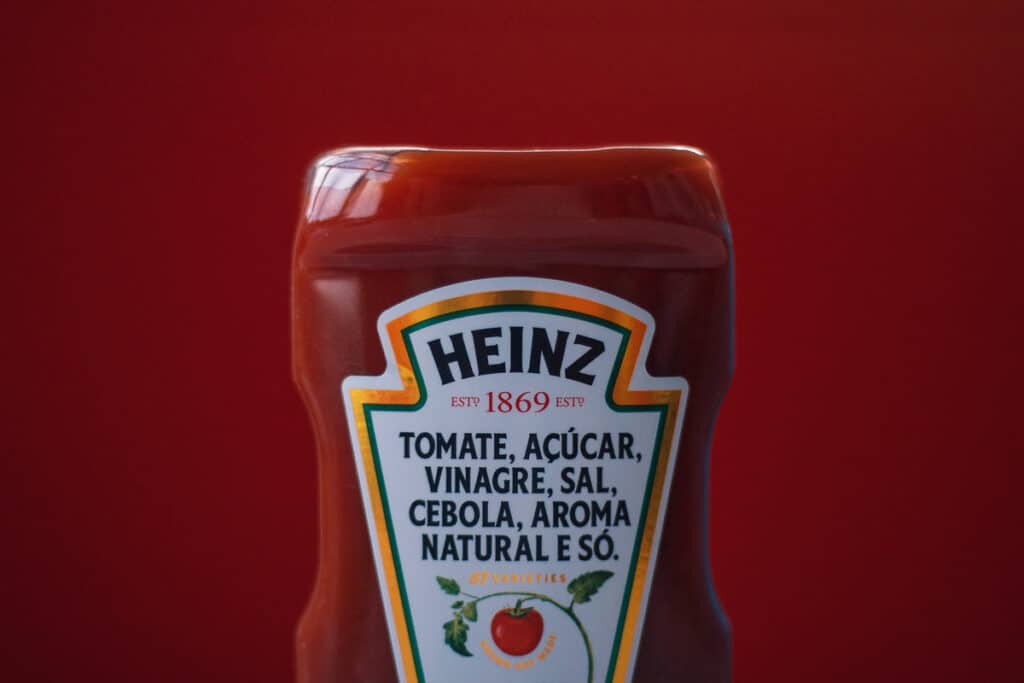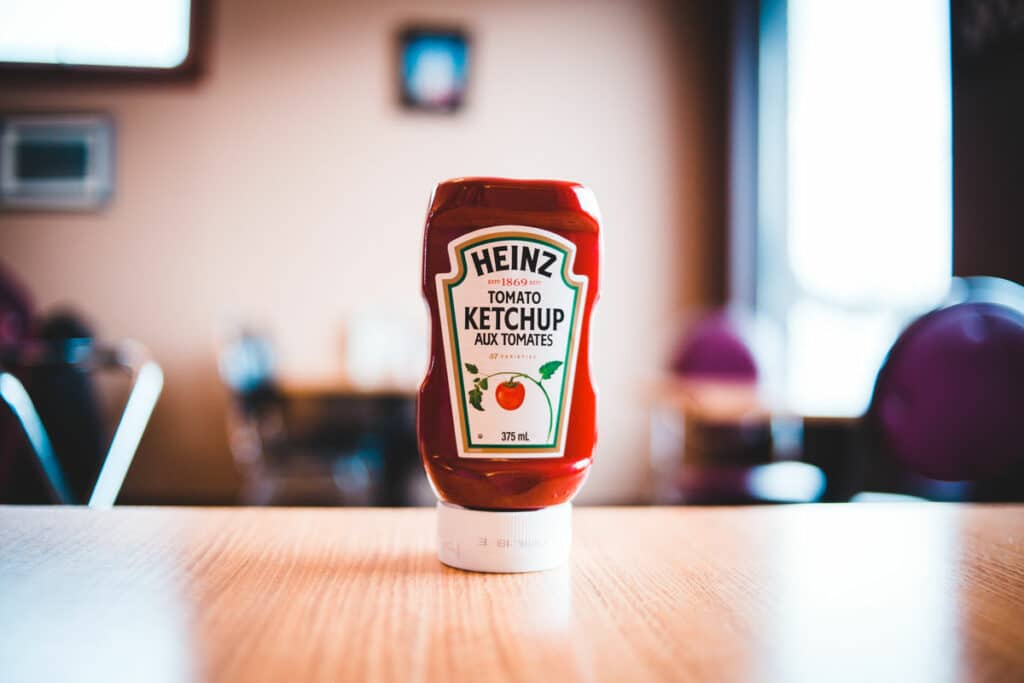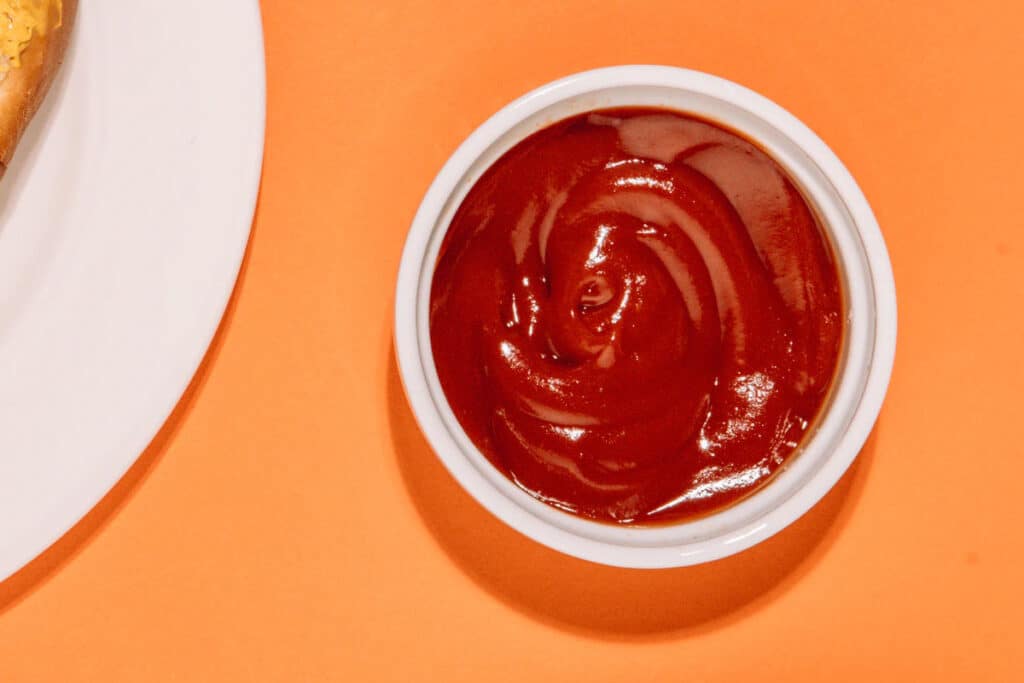
Ketchup is a staple in many kitchens. Whether you use it as a dipping sauce or as an ingredient in other dishes, ketchup is very versatile.
If you’re one of those persons who doesn’t use ketchup often though, you might find yourself wondering after a few weeks if that ketchup that’s been sitting in your kitchen cupboard is still edible.
If this sounds familiar, then continue reading below for all the answers you’ll need.
Does Ketchup Go Bad?
Yes, it most definitely does, and certain factors will speed up the process. Long before the expiration date comes, ketchup can and will go bad if improper storage techniques are followed. As such, before you consume, you should always take steps to check the contents thoroughly if you have doubts.
How Do You Tell If Ketchup is Bad/Spoiled?

There are a couple tell-tell signs that you can use to determine if ketchup has gone bad and is spoiled.
Let us take a look at what some of these signs are.
The Smell Check:
Most varieties of ketchup smell similar. Regular ketchup has a mild spiced tomato smell. Ketchup that has gone bad will smell sour or yeast-like. This off smell will usually be noticeable as soon as you open the container.
The Taste Test:
All ketchups do not taste the same, but most have a slightly sweet and tangy flavor. Ketchup that has gone bad will be mostly sour or acidic.
Has The Color Changed?
The change in taste in ketchup that has gone bad is usually accompanied by color changes. Stale ketchup begins to darken over time. If you notice stark color changes then try a few of the other tests that we have here before deciding whether or not the product is beyond saving.
Mold:
In addition to changes in the color, other visible changes will occur in ketchup that has gone bad. One of these changes is the growth of mold. This generally happens on the surface of the ketchup or around the cap of the container.
Bloating & Separation:
Ketchup that’s stored in plastic containers will get bloated after a while when it goes off. In addition, there will be a popping sound when you open the bottle. Both of these are signs that the ketchup is no longer edible.
Separation is also a sign that ketchup is losing its quality. Most varieties of the condiment use vinegar and tomato paste. When the product is close to going off, the vinegar can separate from the tomato paste. Note that this by itself is not an indication of spoilage. If you give the bottle a few good shakes and the ketchup comes back together, then it should be fine for use.
If you shake it however and it remains separated or watery and runny, then you should definitely get a new bottle.
Does Ketchup Need to be Refrigerated After Opening?
Before opening most ketchup varieties are shelf stable, meaning they can be kept at regular temperatures. After opening, some brands recommend that you refrigerate their ketchup. For others, there is no such advice.
This means that whether you decide to refrigerate or not, will depend on the brand you buy and personal preferences. Some people do not like when their condiments are cold, and as such prefer to keep their ketchup and other products at room temperature. If the brand recommends refrigeration after opening though, you should definitely follow this requirement as the product might go bad very quickly if left on a shelf in a cabinet.
How Long Does Ketchup Last?
Compared to other condiments, ketchup has a long shelf life. The acidity of both the tomatoes and vinegar used to make ketchup, give it a long shelf life. Some experts say that unopened ketchup can be stored for a year after the expiration date if storage conditions are ideal.
Once open though, it’s not recommended that you keep ketchup for more than six months in the refrigerator. Open ketchup that’s in use will be exposed to elements such as air and fluctuations in temperature when you remove it from the refrigerator for use.
You can freeze ketchup if you are looking to extend the shelf life a bit more.
If you’re one of those crafty people who make their own ketchup, this has to be refrigerated as soon as it is made. The lack of preservatives and stabilizers also means that while the quality may be higher than the store bought version, it won’t last quite as long. A period of two to three months is the maximum time you’ll get from homemade ketchup.
Best Ways to Store Ketchup So It Doesn’t Go Bad

Storage is extremely important when it comes to food. Improper storage can lead to quality changes and ultimately spoilage of food items. For ketchup, it’s important to keep it in a cool place, away from the elements such as heat or direct sunlight.
Once you’ve opened the bottle, if it says to refrigerate, then follow that guidance. Otherwise a kitchen shelf that’s far away from appliances or a cupboard should be ideal.
For homemade ketchup, it’s best to store in glass bottles over plastic. Glass is easier to sanitize and get rid of potential harmful bacteria that could cause decay. Ensure that the container has an airtight seal. Sanitize the cap as well to prevent contaminants getting into your ketchup.
Risks of Consuming Spoiled Ketchup
Consuming any type of spoiled food will cause mild to moderate digestive issues. Stomach cramps, nausea and vomiting are all possible side effects. Usually you can self-medicate with warm teas and over the counter medication. If the discomfort or pain lasts for more than a day though, you should reach out to your primary care provider for guidance.
Wrapping it up
Ketchup is a long lasting and stable condiment. When stored properly, it will last ages. Improper storage however can speed up spoilage. So, to get the most out of your money, follow the storage guidelines we outlined above and preserve your ketchup long past its expiration date.